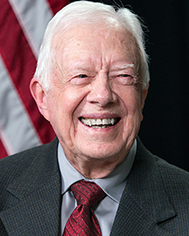The earth receives enough energy from the sun in one hour
to power the whole world for a year, reminded Steve Kalland of
the
North Carolina Solar Center (NCSC) at the
Southern Solar Summit.
So how do we get solar energy deployed?

Kalland said transparency is key.
Other speakers had said you could have too much transparency,
but Kalland pointed out that it was only through a hearing that
North Carolina found out a major power company was going to use up its
solar energy credits years ahead of schedule, and without transparency
there couldn’t be real competition because the customers wouldn’t
know who had which prices.
What else does it take to make a state competitive in solar?
Kalland discussed this table (reformatted here from the copy of
his presentation he gave me):
Foundational Steps to Focus on Solar
|
Installed Capacity
|
Manufacturing |
Interconnection Standards
Base Resources (economic or voices)
Early Adopters
Military or Large Federal
High Tech Firms
Corporate Greens
|
University Partnership Opportunities
Existing presence of businesses in multiple fields (diversification)
|
He said a lot more, but that’s a very interesting table to
consider not only for a state, but for a region, like south Georgia,
or a small metro area, like Valdosta MSA.
I know some people will react with: “but VSU is not a research university!”
Nope, but this could be a way to add some research capacity to VSU.
-jsq
 Chuck Eaton, Georgia Public Service Commissioner,
moderating a panel of Georgia’s Policy Makers at
Southern Solar Summit
said
Chuck Eaton, Georgia Public Service Commissioner,
moderating a panel of Georgia’s Policy Makers at
Southern Solar Summit
said








